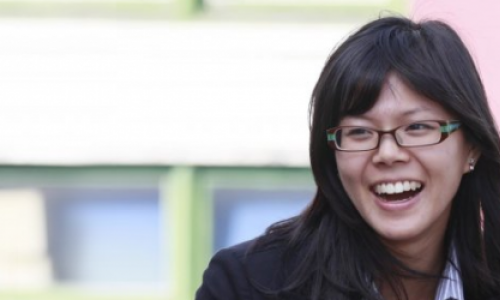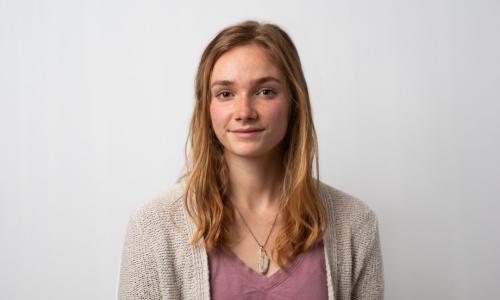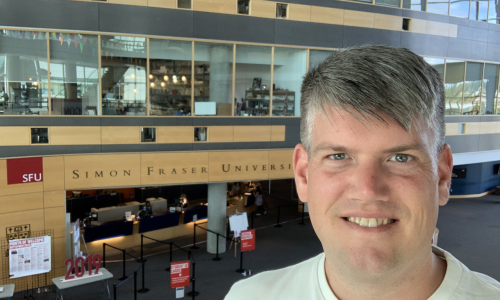
Graduating can be scary. When you complete a bachelor's degree, it means entering society—getting a job, becoming an adult, and looking “successful."
Currently, I’m studying at SFU as a fourth-year Communication and Publishing student. I still find it extremely stressful to graduate because of the fear of not knowing if I have prepared myself enough before entering the “real” world. Especially with the pandemic, I think the majority of us feel like we are in the dark.
I started to be curious about how SFU Communication alumni enter the communication industry and what they do with their degree. Then, I started to connect with alumni through LinkedIn and did a number of informational interviews by sending cold messages via LinkedIn.
When I was doing my informational interviews, I prepared a list of customized questions by viewing their profile. These informational interviews inspired me to explore different non-academic programs, such as SFU Change Lab, LightHouse Labs Bootcamp, and the Co-op program. After that, I decided to apply for a co-op because I want to gain corporate work experience and secure a job after I graduated. Now, I’m working as a Videographer and Graphic media Intern in a mining company!
Have a Plan
Graduation is a reflection of your university journey. It is perfectly natural to be scared that you chose the wrong degree, especially if you already spent 5+ years pursuing that piece of nice parchment paper. This may lead to the fear of disappointing your parents as well. The older generation may not understand why a university degree is not enough to get a job nowadays. Work experiences, technical or practical skills are also important when it comes to job seeking. Thus, it is essential to have a plan.
-
What are you interested in doing?
-
Where can you gain the experience or skills you want? [this requires some research on what kind of jobs you want to do]
-
How do you measure the goals?
-
Prepare a backup plan if you don’t like what your current degree leads to you? Would you consider doing another certificate or pursuing a master degree? If so, how can you support yourself?
Starting with these questions so that you know what is worth spending your valuable time on before/after you graduated.
Overcome Comparison
One of my biggest graduation anxieties is comparing. I used to compare with people who were older than me and more “successful” than me. I know this is very unhealthy and toxic but I couldn’t help myself to fall into that deep hole.
I found that the reason why I compare is I want to become the person who I always compare with. I was so shocked by that realization because I have always been very self-driven. I realize at this time that my self-esteem had also been sinking without me noticing. I told myself that I didn’t want to become anyone. The only person I should compare with is myself AND my past-self.
I knew I had to stop caring about what other people thought. All I needed to do was to follow my own path and work hard. Surprisingly, I turned “comparing” to become my small part of motivation to find an internship before I graduated.
Say Goodbye to "University Talk"
My other anxiety that I have about graduation is having to say goodbye to “University Talk”. I have this fear that I will find it so hard to communicate or socialize with people outside of school when I graduate. When talking to my peers, we always discuss how or where to gain volunteer and work experience, what classes to take, who is hosting a party tonight, etc.
However, when it comes to a conversation with my managers in my Co-op company, we share our opinions on politics, new technology, investing, etc. This motivated me to pay more attention to the news, read more books, and think about what interested me the most in my life.
Rediscover Old Hobbies
Then, I started to rediscover my hobbies. When I was a kid, I developed a lot of hobbies, such as piano, traditional chinese painting, competitive swimming, and Royal Academy ballet. I stopped swimming and dancing in Hong Kong for a few years because I had to complete the university entrance exam and move to Canada. I’ve started attending ballet classes and swimming again in my second year in University. I treat them as my hobbies to maintain my physical health and well-being. Picking up old passions allows me to recall my self-confidence and spend time with like-minded folks.
To conclude, it is completely normal to feel lost as a university student, particularly when it comes to graduation. I don’t have an absolute solution on how to overcome anxiety. But it is important to recognize your emotions, acknowledge your feelings, and share it with someone you trust. You will only become tougher and know how to respond to those negative thoughts when you encounter a similar situation next time.
This blog was originally posted on the SFU Surrey-TD Community Engagement Centre website on April 1, 2021.















